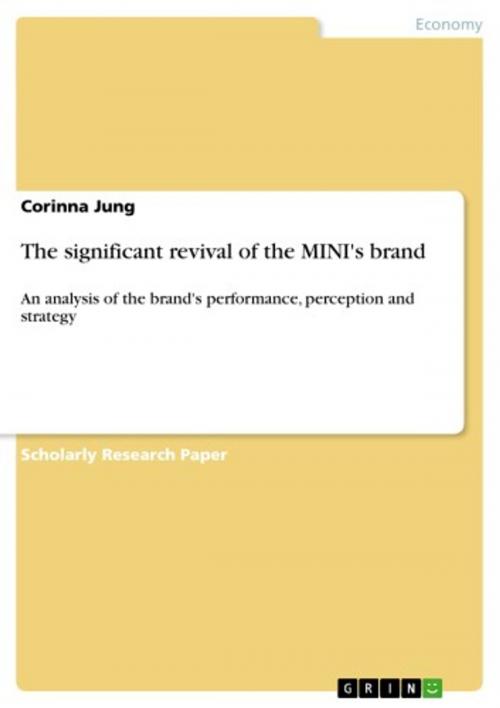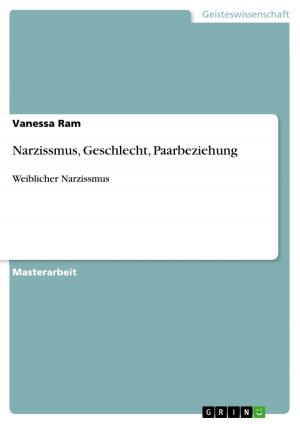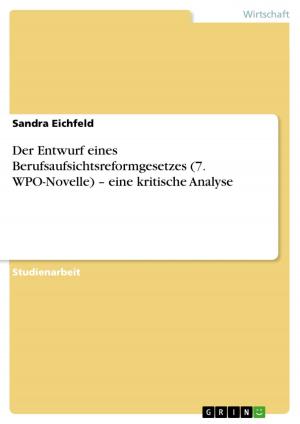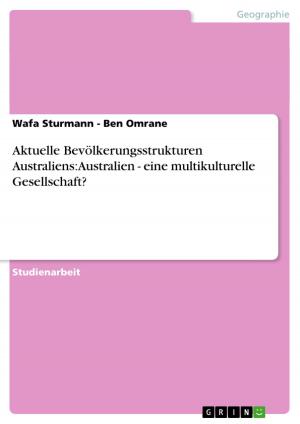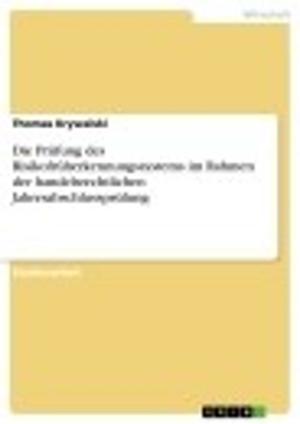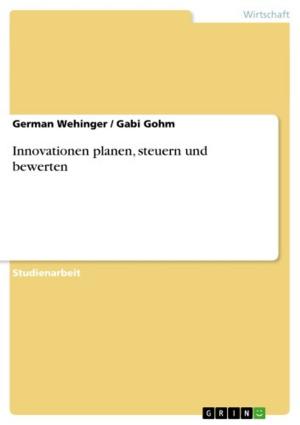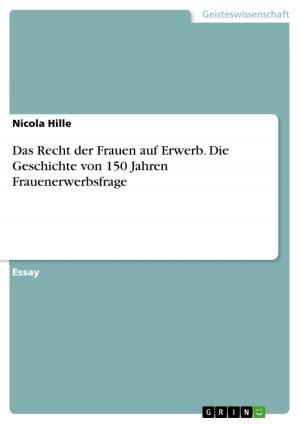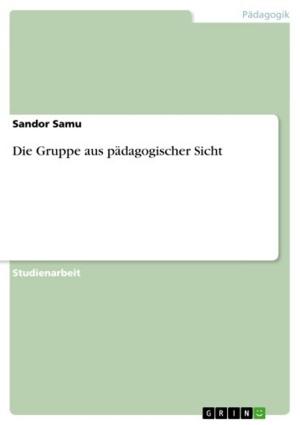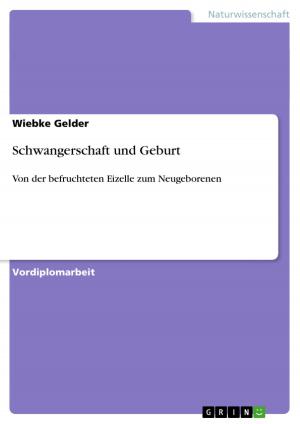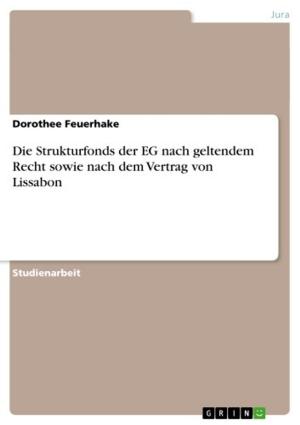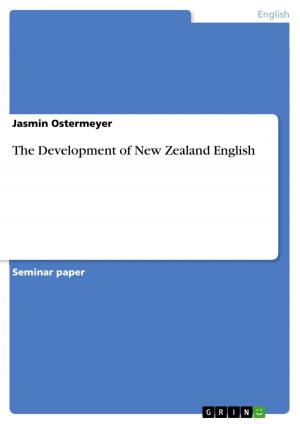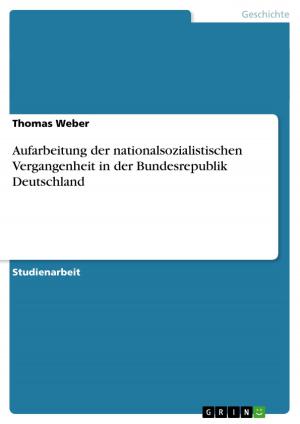The significant revival of the MINI's brand
An analysis of the brand's performance, perception and strategy
Business & Finance, Marketing & Sales| Author: | Corinna Jung | ISBN: | 9783656079552 |
| Publisher: | GRIN Verlag | Publication: | December 8, 2011 |
| Imprint: | GRIN Verlag | Language: | English |
| Author: | Corinna Jung |
| ISBN: | 9783656079552 |
| Publisher: | GRIN Verlag |
| Publication: | December 8, 2011 |
| Imprint: | GRIN Verlag |
| Language: | English |
Research Paper (undergraduate) from the year 2011 in the subject Business economics - Marketing, Corporate Communication, CRM, Market Research, Social Media, grade: 76 % (1,0), University of Exeter (Business School), language: English, abstract: 1. Introduction Consumers consider automobiles like the Mini not only as a means of conveyance but also express their attitudes towards life. The Mini fascinates people due to its outstanding design and image and touches its owners in an emotional way expressed through the brand's slogan characterized with an 'emotional modifier' (Keller, 2008): Mini 'Is it love?' (Automotive Intelligence, 2001). Successful automobile manufacturers realized that cars are not only purchased due to rational reasons but that it highly depends on its design, equipment and image. Due to the importance of the customer perception to a brand and also due to an increasing product portfolio, the goal of car makers is to differentiate their brand from competition by building a strong and unique image (Meffert et al., 2008). The goal of the subsequent paper is to analyse how BMW managed the Mini's brand significant revival. Beginning with a description of the brand and its related attributes, the paper analyses the Mini's brand performance in the last five years and its positioning related to its main competitors. Furthermore, it explains the brand's performance by analysing its customer perceptions and gives some recommendation how to capture and manage future opportunities and challenges. 2. Description of the brand Mini and its attributes Due to the closure of the Suez Canal and its combined oil crisis the engineer and designer Alec Issigonis received the mission from the British Leyland Motor Corporation to design a fuel-efficient car. During the 1960's the Mini's brand gained an image of cult and lifestyle however, the car was accident-sensitive and sales figures dropped significantly which is why the BMW Group overtook the Mini brand in 1994 (Bessing et al., 2006). BMW created a high-quality product which is well-known and well ranked in consumer reports. The Mini's pricing starts at ?15.550 for the Mini One, ?23.650 for the Mini Cooper S, ?18.600 for the Mini Clubman and the Cabriolets' prices start at ?20.950 (Geiger, 2010). The Mini is thus more expensive than its competitors like e.g. the VW Polo whose price starts at ? 12.275 and ends at ? 20.900 for the CrossPolo (Volkswagen AG, 2011). The core brand attributes of the Mini......
Research Paper (undergraduate) from the year 2011 in the subject Business economics - Marketing, Corporate Communication, CRM, Market Research, Social Media, grade: 76 % (1,0), University of Exeter (Business School), language: English, abstract: 1. Introduction Consumers consider automobiles like the Mini not only as a means of conveyance but also express their attitudes towards life. The Mini fascinates people due to its outstanding design and image and touches its owners in an emotional way expressed through the brand's slogan characterized with an 'emotional modifier' (Keller, 2008): Mini 'Is it love?' (Automotive Intelligence, 2001). Successful automobile manufacturers realized that cars are not only purchased due to rational reasons but that it highly depends on its design, equipment and image. Due to the importance of the customer perception to a brand and also due to an increasing product portfolio, the goal of car makers is to differentiate their brand from competition by building a strong and unique image (Meffert et al., 2008). The goal of the subsequent paper is to analyse how BMW managed the Mini's brand significant revival. Beginning with a description of the brand and its related attributes, the paper analyses the Mini's brand performance in the last five years and its positioning related to its main competitors. Furthermore, it explains the brand's performance by analysing its customer perceptions and gives some recommendation how to capture and manage future opportunities and challenges. 2. Description of the brand Mini and its attributes Due to the closure of the Suez Canal and its combined oil crisis the engineer and designer Alec Issigonis received the mission from the British Leyland Motor Corporation to design a fuel-efficient car. During the 1960's the Mini's brand gained an image of cult and lifestyle however, the car was accident-sensitive and sales figures dropped significantly which is why the BMW Group overtook the Mini brand in 1994 (Bessing et al., 2006). BMW created a high-quality product which is well-known and well ranked in consumer reports. The Mini's pricing starts at ?15.550 for the Mini One, ?23.650 for the Mini Cooper S, ?18.600 for the Mini Clubman and the Cabriolets' prices start at ?20.950 (Geiger, 2010). The Mini is thus more expensive than its competitors like e.g. the VW Polo whose price starts at ? 12.275 and ends at ? 20.900 for the CrossPolo (Volkswagen AG, 2011). The core brand attributes of the Mini......
